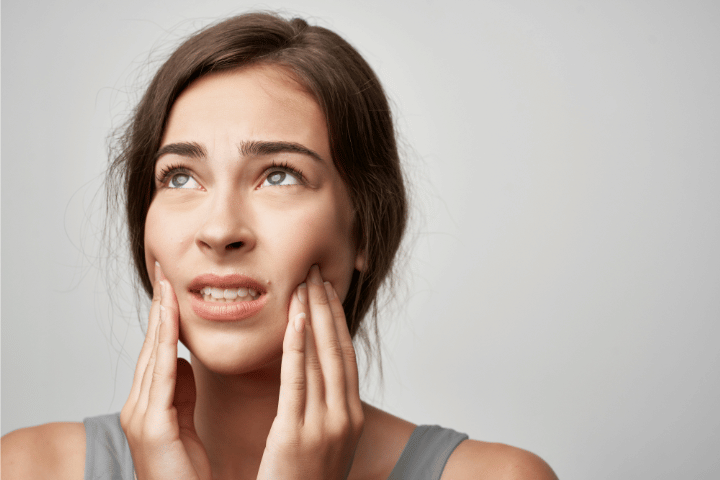
Introduction:
Maintaining good dental health is crucial for overall well-being. However, certain medical conditions can significantly affect oral health. One such condition is acid reflux, also known as gastroesophageal reflux disease (GERD). Acid reflux is a common digestive disorder that occurs when stomach acid flows back into the esophagus, causing various symptoms and potential complications.
Understanding Acid Reflux
Acid reflux occurs when the lower esophageal sphincter (LES), a muscular valve that separates the stomach from the esophagus, weakens or relaxes inappropriately. This allows stomach acid and partially digested food to flow back into the esophagus, leading to irritation and inflammation.
Acid reflux is characterized by symptoms such as heartburn, regurgitation, chest pain, and difficulty swallowing. If left untreated, it can cause long-term damage to the esophagus and affect dental health.
Dental Erosion Caused by Acid Reflux
One of the primary concerns regarding acid reflux is dental erosion. The high acidity of stomach acid can erode the enamel, the protective outer layer of the teeth. Enamel erosion weakens the teeth and increases the risk of tooth decay, sensitivity, and other dental problems.
Regular exposure to stomach acid can also affect dental restorations such as fillings, crowns, and veneers. These restorations may deteriorate faster, requiring frequent replacements.
Role of Saliva in Protecting Teeth
Saliva plays a crucial role in maintaining dental health. It helps neutralize acid, remineralize teeth, and wash away food particles and bacteria. However, acid reflux can decrease saliva production, reducing its protective effects on the teeth.
When acid reflux is frequent or severe, the saliva may not have enough time to neutralize the acid, leading to prolonged exposure and increased damage to the teeth.
Tips for Managing Acid Reflux and Protecting Dental Health
Maintain Good Oral Hygiene
Brushing twice a day with fluoride toothpaste and flossing daily are essential for everyone, especially for those with acid reflux. Good oral hygiene helps remove acid, bacteria, and food particles, reducing the risk of dental problems.
Rinse Your Mouth
After an episode of acid reflux, rinse your mouth with water to dilute and wash away any remaining acid. Avoid brushing immediately as the enamel may be softened by the acid, making it more susceptible to damage.
Avoid Trigger Foods and Beverages
Certain foods and beverages can trigger acid reflux and increase its severity. Common triggers include citrus fruits, tomatoes, spicy foods, caffeine, carbonated drinks, and alcohol. Limiting their consumption can help manage acid reflux and protect dental health.
Elevate Your Head while Sleeping
Elevating the head of your bed by using pillows or blocks can help prevent acid from flowing back into the esophagus while you sleep. This can reduce the frequency and severity of acid reflux episodes.
Seek Medical Treatment
If you experience frequent or severe acid reflux, it is essential to consult a healthcare professional. They can diagnose the condition, determine the underlying causes, and recommend appropriate treatment options, including lifestyle changes and medication.
Dental Care for Acid Reflux Patients
Dentists play a vital role in managing the dental health of patients with acid reflux. They can provide personalized advice, monitor the condition of the teeth and mouth, and offer treatments to mitigate the effects of acid reflux.
Dental treatments may include the application of fluoride varnish to strengthen the enamel, the use of desensitizing agents for tooth sensitivity, and dental procedures such as dental bonding or veneers to restore damaged teeth.
Regular dental check-ups are crucial for acid reflux patients. Dentists can identify early signs of dental erosion and provide timely interventions to prevent further damage. They may also collaborate with gastroenterologists or other healthcare professionals to develop a comprehensive treatment plan for managing acid reflux and its impact on dental health.
Safeguarding Your Oral Well-being
Acid reflux can have a significant impact on dental health, primarily through dental erosion caused by the high acidity of stomach acid. It weakens the enamel, increases the risk of tooth decay, and can affect dental restorations. Reduced saliva production during acid reflux exacerbates these effects, as saliva plays a vital role in protecting teeth.
However, by implementing certain strategies, individuals with acid reflux can mitigate the impact on their dental health. By understanding the connection between acid reflux and dental health and adopting preventive measures, individuals can take proactive steps to safeguard their oral well-being
Remember, a healthy smile starts with a comprehensive approach to overall health, including managing acid reflux and maintaining good dental care habits.
FAQs
Acid reflux can have a significant impact on dental health by causing dental erosion. The high acidity of stomach acid weakens the enamel, increasing the risk of tooth decay and sensitivity. It can also affect dental restorations such as fillings and crowns. Reduced saliva production during acid reflux further exacerbates these effects as saliva helps protect the teeth.
To protect your teeth from acid reflux, it is essential to maintain good oral hygiene. Brush your teeth twice a day with fluoride toothpaste and floss daily to remove acid, bacteria, and food particles. After an episode of acid reflux, rinse your mouth with water to dilute and wash away any remaining acid. Avoid brushing immediately after reflux as it may damage softened enamel. Additionally, avoid trigger foods and beverages, elevate your head while sleeping, and seek medical treatment for frequent or severe acid reflux.
Yes, acid reflux can cause tooth sensitivity. The erosion of enamel due to frequent exposure to stomach acid can lead to increased tooth sensitivity. The loss of enamel exposes the underlying dentin, which contains microscopic tubules that connect to the nerves of the teeth, causing sensitivity to hot, cold, or sweet stimuli.



 Australia
Australia New Zealand
New Zealand Malaysia
Malaysia English
English Portuguese
Portuguese English
English English
English English
English English
English English
English Canada
Canada